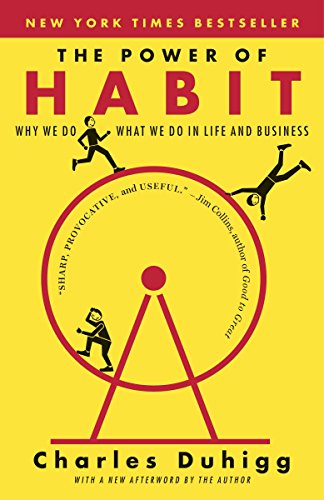Of Cookies and Cogs
I’ve been reading Charles Duhigg’s The Power of Habit – which is exceptional – and there’s one part that applies especially well to teaching. I’ll quote at length:
Mark Muraven…a professor at the University of Albany…put undergraduates in a room that contained a plate of warm, fresh cookies and asked them to ignore the treats. Half the participants were treated kindly. “We ask that you please don’t eat the cookies. Is that okay?” a researcher said. She then discussed the purpose of the experiment, explaining that it was to measure their ability to resist temptations. She thanked them for contributing their time. “If you have any suggestions or thoughts about how we can improve this experiment, please lt me know…”
The other half…weren’t coddled the same way. They were simply given orders.
“You must not eat the cookies,” the researcher told them. She didn’t explain the experiment’s goals, compliment them, or show any interest in their feedback. She told them to follow the instructions. “We’ll start now,” she said.
The students from both groups had to ignore the warm cookies for five minutes after the researcher left the room. None gave in to temptation.
So far, this seems fairly straightforward and not at all groundbreaking. I dare say we all knew going in that people like being treated nicely more than they like being bossed around. BUT WAIT, dear reader; there is more.
Then the researcher returned. She asked each student to look at a computer monitor…programmed to flash numbers on the screen…The participants were asked to hit the space bar every time they saw a “6” followed by a “4.” [Paying attention to a boring sequence of flashing numbers] has become a standard way to measure willpower…
Students who had been treated rudely…did terribly. They kept forgetting to hit the space bar. They said they were tired and couldn’t focus. Their willpower muscle, researchers determined, had been fatigued by the brusque instructions…
[T]he key difference was the sense of control they had over their experience…”If [people] feel like its a choice or something they enjoy doing because it helps someone else, it’s much less taxing. If they feel like they have no autonomy, if they’re just following orders, their willpower muscles get tired much faster. In both cases, people ignored the cookies. But when the students were treated like cogs, rather than people, it took a lot more willpower.
The experiment was never about the cookies to begin with. The cookies were simply a way to create two different groups: those who were treated like equals, and those who were treated like subjects. it turns out both groups were successful at ignoring the cookies — but it took more willpower out of the people who’d been brazenly bossed around.
And when they asked them to do one more thing, they expressed more opposition and folded up the tent earlier. Here’s the thing: every student in a classroom already knows the teacher has the ultimate power — which is why I can’t understand why so many teachers feel compelled to come off the top rope with the Elbow of Authority at the slightest provocation.
If you feel that you’re constantly having to assert your authority visibly and vocally, consider two possibilities:
1) That it’s your fault in the first place, and
2) That the solution is to assert yourself less, not more.
People respond to confidence, and there’s something about a teacher with quiet confidence that students will always respond to more readily than they will a teacher who’s constantly got guns blazing for some perceived slight.
I know: I used to be that guy.
I wasted a decade of my teaching career before I figured this out, but it was supremely validating to see something I talk and write about incessantly confirmed in Duhigg’s book:
Students are people, like you. Like you, they respond well to humane treatment. Like you, they respond poorly to bossing, snide comments, and impersonal or irrational treatment.
These days, I incorporate this concept into everything I do as a teacher. Most days, I start the day by thanking them for coming. The first time I do, it’s weird. Most of them have never had a teacher tell them anything like that before.
I make sure they know: you made a choice to be here. You could have skipped. You could have played sick. You could have dropped out. And I’m so glad you didn’t.
It takes me ten seconds a day to buy enough goodwill to last a student’s entire career.
Other practical applications of this concept:
Take five minutes up front to talk about why you’re going to cover each unit — and if the reason is “this doesn’t really matter but it’s a graduation requirement,” be honest with them.
Let the class have input into which day you’ll give assessments and what those assessments will be like.
Tell them which units are coming up and ask which order they want to cover them in. (Bad idea in a math class — works surprisingly well in some broad sciences and humanities courses.)
When discipline is required, consider exploring a restorative approach, rather than a retributive approach.
Teachers who have already bought in, how do you incorporate these ideas into your classroom?


